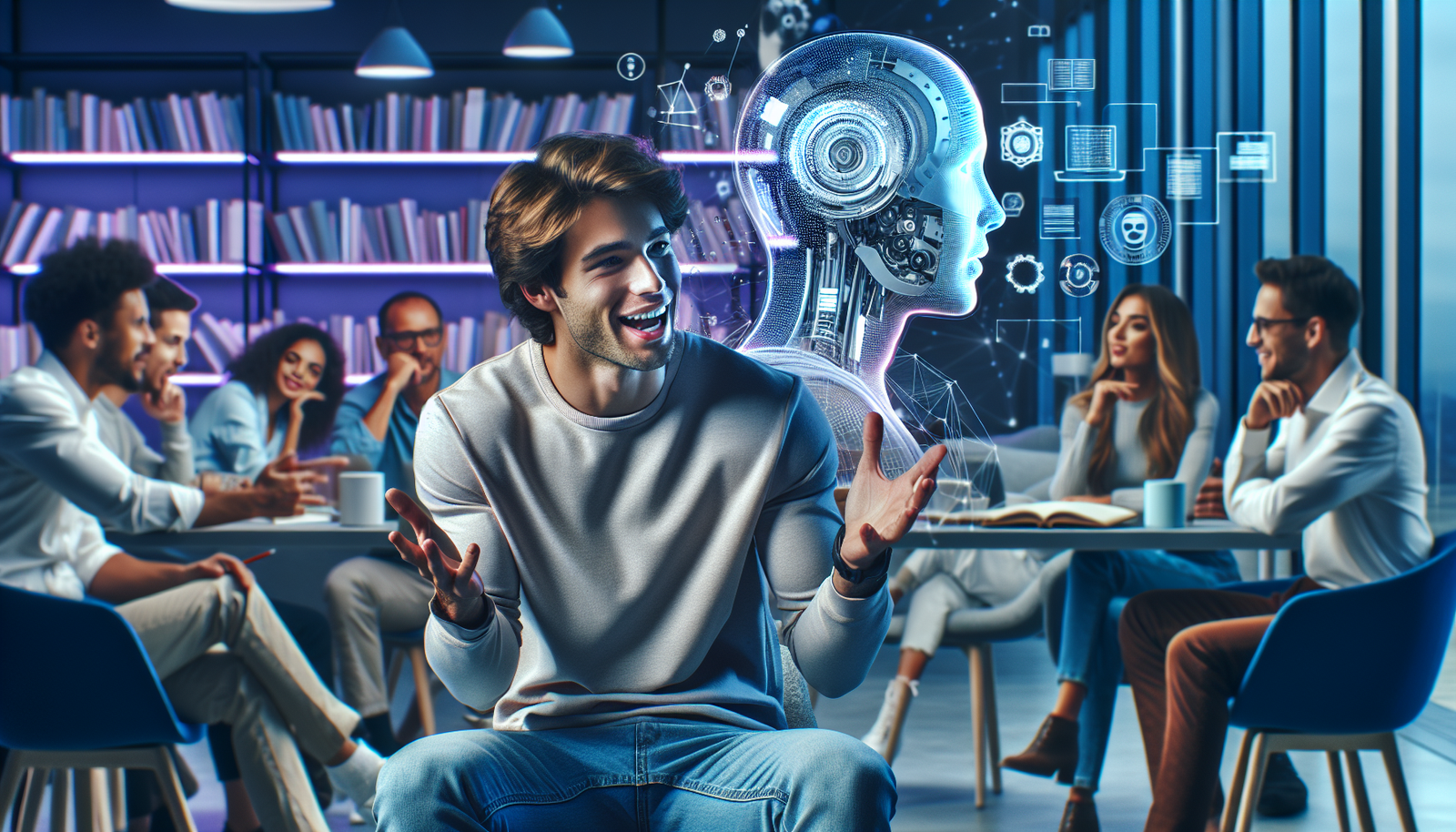The future of work is being shaped through the lens of Artificial Intelligence. Mark Cuban, an iconic figure in entrepreneurship, remains optimistic about the impact of this technology on sectors requiring deep thought. __*Cuban argues that AI does not threaten analytical jobs.*__ These roles, often based on creativity and intellect, will continue to require human intervention. __*The capacity for human reasoning remains unmatched by any machine.*__ While AI transforms other sectors, intellectual expertise proves to be more essential than ever.
Mark Cuban’s Analysis on the Impact of AI
Mark Cuban emphasizes that Artificial Intelligence (AI) will not significantly destroy jobs that require deep thinking. In an interview, he explained his vision that professions requiring complex decisions and critical judgment will be less affected by technological advancements. Unlike occupations that focus on simple and repetitive decisions, jobs based on analysis and creativity will remain relatively intact.
AI and Simple Decisions
Cuban notes that positions affected by AI often involve simple “yes or no” choices. For these roles, *algorithms* and AI systems can provide more efficient solutions. Indeed, this automation could transform the way certain services are delivered, particularly in sectors like *customer service* and administration.
Necessary Supervision of Systems
The leader of Cost Plus Drugs insists on the need for human supervision of AI systems. Data training and result interpretation require a deep understanding of the business context. Cuban asserts that the intellectual capacity of workers is essential to ensure the relevance and accuracy of deployed AI models. Users must interact with the systems to provide critical feedback, a key influence for the success of integrated technologies.
Consequences for the Labor Market
A study from the World Economic Forum revealed that around 44% of workers’ skills will undergo significant disruptions over the next five years. In contrast, a report from McKinsey shows that AI could actually enhance certain white-collar functions, rather than shorten them. By automating about 30% of work hours, AI could even allow employees to focus on more strategic tasks.
Case-by-Case Approach
Cuban concludes that the impact of AI on a company’s workforce will depend on many factors. Each company has its own structure and priorities, thus, “the ability to implement AI will be decisive.” This point underscores the need for rapid and thoughtful adaptation to leverage the benefits offered by this technology. Managers will need to navigate the transition cautiously while integrating artificial intelligence solutions.
References and Perspectives
The future of AI raises existential questions for the world of work. As risks and opportunities coexist, initiatives such as those from the OSS (OpenAI Safety Set) aim to mitigate potential dangers. The models created must meet high standards to avoid biases, an imperative in the evolution of AI technologies. The *United Kingdom*, for example, has established the LASR to address security threats related to AI, illustrating the urgency of establishing clear regulations.
Furthermore, companies like Amazon are developing advanced AI models as discussed in various articles on emerging technologies. The dynamics around capacitors and advancements in AI, for instance, address a new realm of research. Additionally, SEO is evolving thanks to solutions that integrate optimization strategies proposed by AI-centered platforms. All this evolution reflects a future where artificial intelligence and humans will coexist in a common quest for innovation.
Questions and Answers on the Impact of AI According to Mark Cuban
What is Mark Cuban’s opinion on the impact of AI on jobs requiring deep thinking?
Mark Cuban believes that AI will have only a limited impact on jobs that require advanced thinking skills, suggesting that these positions require a human understanding that goes beyond simple repetitive tasks.
Which types of jobs are primarily threatened by AI, according to Mark Cuban?
Cuban indicates that jobs primarily involving simple decisions, such as answering “yes” or “no,” will be most affected by AI, while analytical or creative jobs will be less vulnerable.
How can companies prepare their employees for the integration of AI, according to Mark Cuban’s recommendations?
He suggests that companies must ensure that employees oversee AI, check the quality of data used to train the models, and provide feedback to improve outcomes.
Why does Mark Cuban believe that AI will not destroy white-collar roles?
Cuban thinks that AI could actually enhance roles in fields such as law and finance by automating certain tasks, allowing professionals to focus on more complex and creative aspects of their work.
What role will human skills play in an increasingly automated work landscape?
Human skills, particularly critical thinking, creativity, and empathy, will remain essential as they are difficult to replicate by AI, thereby reinforcing the value of workers in jobs requiring deep thought.
How can companies evaluate their ability to integrate AI, according to Mark Cuban?
Cuban emphasizes that a company’s ability to implement AI depends on its internal specifics and capacity to manage change, indicating that there is no one-size-fits-all solution applicable to all companies.
What are the forecasts regarding the evolution of skills in the workplace due to AI adoption?
Studies, including those from the World Economic Forum, forecast that within five years, up to 44% of workers’ skills could become obsolete, necessitating a major effort in reskilling and training.
Is Mark Cuban’s opinion shared by other experts in the technology sector?
Yes, many experts agree that AI will have a differentiated impact across various sectors of work, supporting that the most vulnerable jobs are those involving repetitive tasks rather than those requiring complex judgment.






